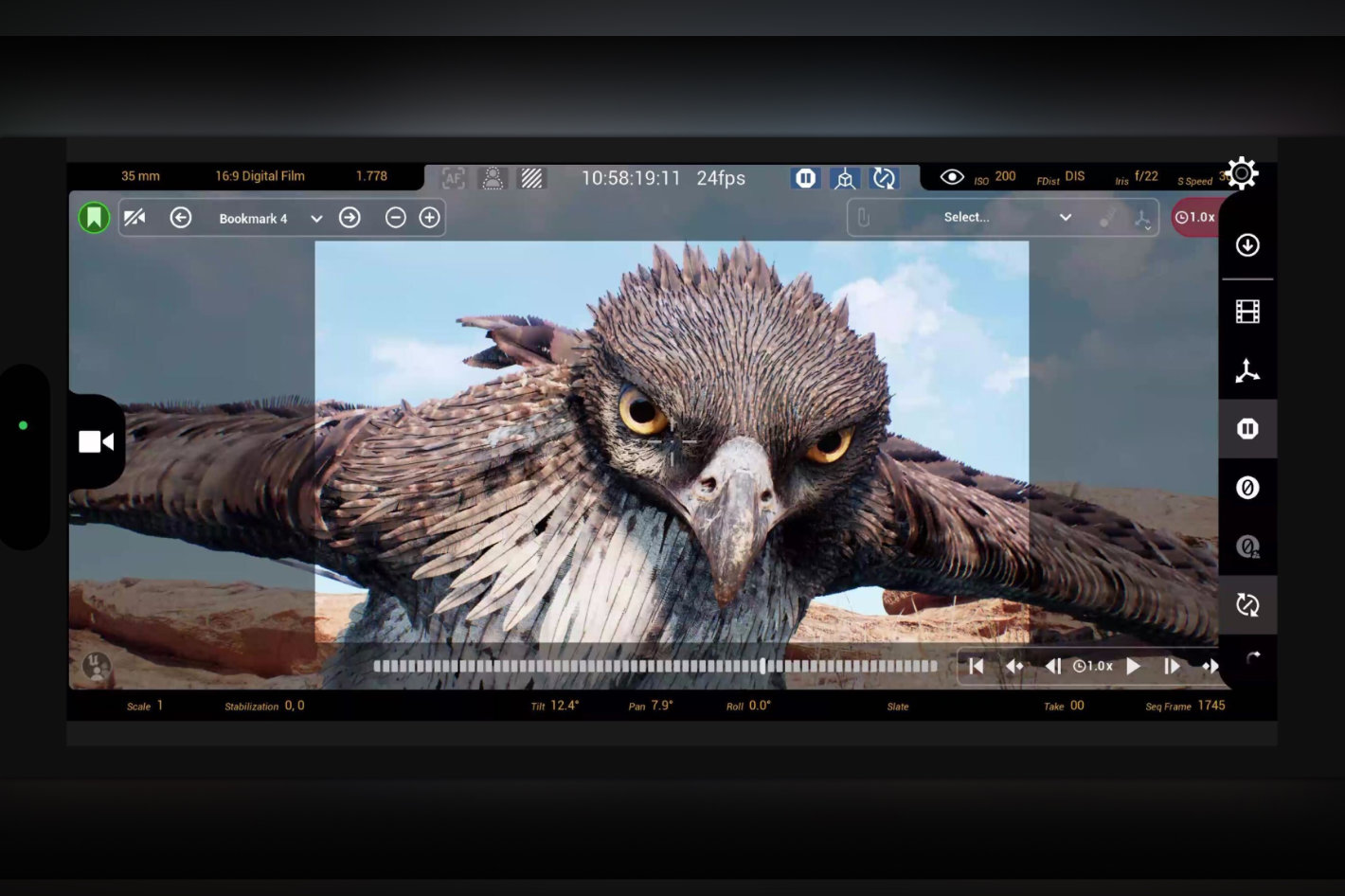
First the good news for Android users. The new release of Unreal VCam will enable virtual production-ready cinematography in real time from any Android device. This is the same app that has been known as Live Link VCAM and only available on iOS until now. Epic Games says that “filmmakers embracing virtual production will benefit from updates to Unreal Engine’s Virtual Camera tool, which is now Production-Ready, and adds Android to its existing iOS platform support. Virtual Camera workflows are also now fully supported in Unreal Engine on macOS. The mobile application is now renamed Unreal VCam, and can be found on the Apple Store and Google Play.”
Unreal VCam enables filmmakers to translate traditional concepts like camera lensing, framing, and movement into Unreal Engine’s digital realm. Record realistic camera takes that can be further fine-tuned in editor to create elegant final compositions when assembled in Unreal Engine’s Sequencer. Review early set environments through the lens, previs shot cameras before a shoot, capture real takes during principal photography, create a new shot in post, or all of the above.
The new Unreal Engine Motion Design Mode (previously known as Avalanche) in Unreal Engine 5.4 is a game-changing environment meticulously crafted to empower motion graphics designers with precisely tailored tools. The thoughtfully designed layout ensures, Epic Games says, “seamless workflow initiation and sustained productivity.”
Equipped with specialized tools for the 2D canvas and an enhanced world outliner featuring intuitive hierarchies, Motion Design Mode provides a comprehensive suite including 3D shapes, cloners, effectors, modifiers, animators, and features for non-linear animations. This dedicated mode is engineered to elevate the motion graphics design experience, offering a robust and user-friendly platform for designers to bring their creative visions to life.
Over 300 companies and 550 individuals have been beta-testing Unreal Engine Motion Design Mode since last year. CBS Sports used numerous Unreal Engine tools to deliver the stunning Super Bowl LVIII motion graphics package designed around the Las Vegas strip. CBS Sports also used Unreal Engine to kick off the show opener with an XR promo shoot at the MSG Sphere and live AR graphics during the game. Even VR scouting tools were used to previs the on-site locations before the big game.
This release also sees substantial updates to Unreal Engine’s built-in animation toolset, enabling you to quickly, easily, and enjoyably rig characters and author animation directly in engine, without the frustrating and time-consuming need to round trip to external applications. Epic Games says that “in this release, we’ve focused on making this animator-friendly toolset robust, performant, and memory-scalable, as well as adding a suite of debugging tools that give developers visibility to its inner workings.”
These are just some of the new features and enhancements in Unreal Engine 5.4. Check out the release notes to see the full feature list.
This release of Unreal Engine happens as we approach the end of April, when Epic Games is updating Unreal Engine, Twinmotion, and RealityCapture pricing. The company announced last year, at Unreal Fest in New Orleans, that, in 2024, Epic Games would “begin offering an Unreal Engine seat-based enterprise software pricing model for industries other than game development. To fund future development efforts, we will be rolling out this new non-game pricing model with Unreal Engine 5.4 in late April.”
The company recently announced that it would introduce a new seat-based Unreal Subscription with the release of Unreal Engine 5.4. This new pricing of $1,850 per seat will apply to companies generating over $1 million USD in annual gross revenue who are not creating games.
Unreal Engine will remain free to use for students, educators, hobbyists, and companies generating less than $1 million in annual gross revenue. Epic Games are not changing their licensing model for game developers, who will continue to pay a 5% royalty on products that exceed $1 million in lifetime gross revenue. The first $1 million that a game generates is exempt from royalties, and revenue earned through the Epic Games Store is exempt from overall royalty calculations, just as it is today.
Epic Games adds that “our goal is to keep our tools free for as many people as possible, especially folks who are just starting out. These changes are designed to make long-term Unreal Engine development sustainable, so that we can continue to provide the very best, most advanced creator tools to all industries—big companies, small studios, individuals, and everyone in between.”


